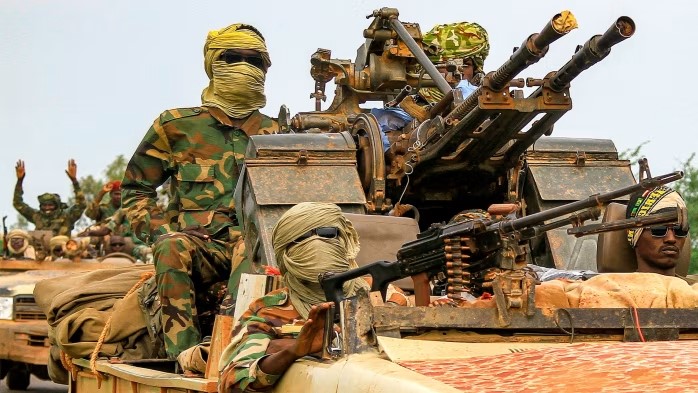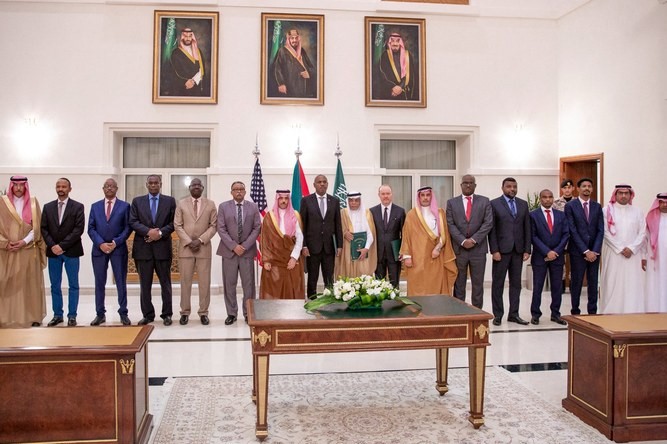The UN is once again raising alarms at escalating violence in the North Darfur city of El Fasher as civilian casualties begin to mount, and tens of thousands more are displaced.
The Battle for Darfur
Clashes in El Fasher have escalated as the paramilitary Rapid Support Forces (RSF) launches assaults upon the city, and the Sudanese Armed Forces (SAF) responds harshly. Both sides have indiscriminately bombed hostile held territory, a tactic employed by both in clashes throughout Sudan, leading to high civilian casualties. From May 10th to 12th, at least 27 civilians were killed with an additional 130 injured as violence erupted in city markets and town centre.

The fighting in recent days has displaced hundreds of people, adding to the tens of thousands that have been further displaced since clashes began near El Fasher in the beginning of April. Fighting has further killed dozens of civilians.
UN Under-Secretary-General for Humanitarian Affairs, Martin Griffiths, has condemned the fighting and stated that Sudan is at “a tipping point.”
The UN, EU, as well as other foreign nations and regional bodies have condemned an assault by the RSF upon El Fasher. The city has become host to a high civilian population of people displaced over the course of the war, which began in April of last year, from other regions of Sudan. El Fasher has several refugee camps, hosting several hundred thousand civilians.
Furthermore, the area has been largely cut off from aid in recent times. So far, in 2024, the city has only received 39 aid trucks; far below the needs of the city. Aid trucks meant to be for the city have been halted at borders and in Port Sudan, largely due to bureaucratic impediments and general insecurity making much of the nation impassable. The UN has consistently called for these bureaucratic impediments to be removed.
The city of El Fasher, the capital of North Darfur, is of vital importance to the government. It is the last remaining major city in Darfur that is still under control of the government. Losing El Fasher would effectively solidify the RSF’s control over Darfur, which is already a stronghold for the RSF. The loss of the city would represent a massive loss for the government, who has already lost significant amounts of territory since the war began.

The civilians of the city are also worried of a potential RSF takeover. Many of those within El Fasher fear potential ethnically targeted killings by the RSF. The RSF throughout the war has carried out a number of ethnically driven massacres, killing hundreds of civilians. Notably, the RSF is a participant in the Darfur genocide, which is effectively still ongoing.
Defending the city is the SAF and a number of associated militias that have declared allegiance to the SAF in order to fight against the RSF.
The War in Sudan
The war in Sudan has been ongoing for over a year now, and has turned the nation into the worlds largest displacement crisis, and further threatens to turn Sudan into the worlds largest hunger crisis. Over nine million people (the majority of which, approximately 6.5 million, have been displaced since the present conflict began) have now been internally displaced in Sudan, with an additional two million having fled the nation. Over 18 million people are in need of food assistance, with five million of those facing emergency levels of hunger.
The war had initially began due to disagreements between the RSF and the SAF on if/how the RSF should integrate into the military, and on power sharing agreements. These disagreements, and the war, came as Sudan was engaging in the long process of transitioning to a civilian government.
Although the war began between the RSF and the SAF, different militias, civil defence groups, and rebel groups have joined the conflict on both sides. The expansion of the war has led to fears of a regional spillover.
In the early days of the war, the US and Saudi Arabia headed peace conferences and negotiations between the two sides, aimed at ended the war. The negotiations successfully negotiated a number of ceasefires, however all of these ceasefires were broken, sometimes within hours, or even before they were implemented.

In March, as the Islamic holy month of Ramadan was ongoing, the US espoused hopes that peace processes would resume after Ramadan had concluded. Closer to the end of Ramadan, the US stated they were looking at April 18th as a potential date to resume these peace talks. As April 18th approached, the US Special Envoy to Sudan, Tom Perriello stated that it no longer seemed likely that talks would resume on this date. After April 18th has passed, there has been little mention of any attempt to resume talks, though the calls to end the war have continued.


